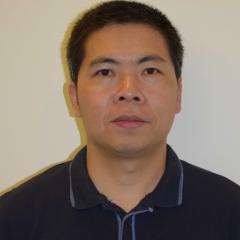About
Oocytes (or eggs) provide the overwhelming majority of cellular building blocks required by embryos. Because females are born with a fixed quota of eggs, both the quality and numbers of available oocytes decline with advancing female age. With women embarking on pregnancy later and later in life, poor oocyte quality has become the biggest stumbling block for pregnancy success. In spite of the importance of oocytes, surprisingly little is known about “what makes a good egg”. Furthermore, at present, there are no available approaches for improving oocyte quality in the clinic. Understanding how the ovarian egg reservoir is regulated throughout life is another important objective since in around 1% of women, the ovarian pool becomes prematurely exhausted before 40 years of age. Remarkably, in over 90% of such cases of premature ovarian insufficiency (POI), there is no identifiable underlying cause.
Professor Homer’s lab is the first lab in Queensland with extensive expertise in studying oocytes, made possible by the Christopher Chen Chair in Reproductive Medicine. The Christopher Chen Chair is Australia’s first and only fully-endowed Chair in Reproductive Medicine.
Professor Homer’s lab is one of only a handful of labs in the world applying state-of-the-art techniques including high-resolution imaging to study oocytes and embryos. The work seeks to better understand oocyte quality and how the ovarian reservoir is regulated with a view to developing novel technologies. The lab is also investigating innovative approaches for protecting oocytes from the damaging effects of chemotherapy during cancer treatment. This research has major implications for the success and safety of assisted reproductive treatments, for fertility preservation and for broader reproductive health.
Contact
Asymmetric division
Mammalian oocytes undergo extremely asymmetric divisions producing one large cell (the oocyte) and a very small cell (the polar body). In this way, oocytes reduce their chromosome numbers in preparation for receiving the sperm’s chromosomal contribution at fertilisation whilst at the same time retaining the bulk of cytoplasmic reserves for supporting embryo development. Our lab is interested in understanding how oocytes achieve this remarkable feat and is particularly interested in events occurring after anaphase-onset.
Meiotic cell-cycle regulation and chromosome segregation
Meiosis involves two sequential nuclear divisions (or M-phases) without an intervening interphase and without nuclear reformation. Our lab is interested in how mammalian oocytes reconfigure the cell-cycle to enable exit from the first meiotic M-phase to occur whilst at the same time averting interphase.
DNA damage and ovarian follicular reserve
In females, the ovarian follicular reserve is endowed prior to birth. Advancing female age therefore has two major consequences, firstly, a decline in oocyte quality and secondly, a decline in oocyte numbers, eventually culminating in the menopause at an average age of 50 years. In around 1% of women, however, the ovarian follicular reserve becomes prematurely depleted before 40 years of age, so-called premature ovarian insufficiency (POI). Surprisingly, in over 90% of cases of POI the underlying cause remains unknown. Our lab is using transgenic mouse models to better identify novel regulators of the ovarian reserve and potential causes of POI.
Sirtuin-mediated regulation of female fertility
Sirtuins are a family of NAD+-dependent deacetylases with ant-ageing properties. Our lab is using transgenic mouse models to investigate the roles of sirtuins in female fertility and oocyte quality.
Epigenetics and oogenesis
Epigenetic modifications (e.g. DNA methylation) alter gene expression patterns independent of changes in DNA sequence. During development, the oocyte’s largely unmethylated genome undergoes highly regulated methylation that is critical for later embryo development. Our lab is using transgenic mouse models to understand how demethylases regulate the oocyte’s epigenetic landscape.
Human oocyte research
We are studying DNA damage in human oocytes obtained from IVF clinics and how the levels of such damage might relate to the chances of IVF success.
We employ a wide range of techniques to study oocytes, some of which are undertaken by only a handful of labs in the world. We micro-manipulate live oocytes and embryos, undertake mouse IVF and perform oocyte/embryo culture. We undertake post-transcriptional gene silencing in oocytes using morpholinos and siRNAs. We use mouse models of ageing and obesity along with transgenic animals. Through partnership with IVF clinics, we are investigating human oocytes for the first time in Queensland. Our lab is fully equipped with dedicated state-of-the-art microinjection and confocal imaging (Leica TCS SP8) facilities enabling us to undertake long-term time-lapse fluorescence imaging for tracking meiotic maturation and chromosome segregation in living oocytes (as an example, see our recent paper in Nature Communications).



